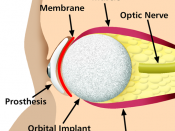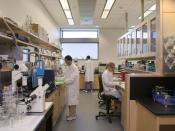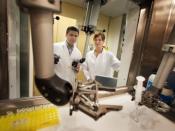Biomedical Engineering Biomedical Engineers are highly trained scientists who use engineering and life science principles to research biological aspects of animal and human life (1). Some tasks of a biomedical engineer include, developing new theories, modifying, testing, and proving existing theories, and designing health care instruments and devices or apply engineering principles to the study of human systems.
Biomedical engineering has been created by advancements in technology. It is an interdisciplinary field that brings together two respected professions, biology and engineering. The profession was developed primarily after 1945, as a new technology allowed for the application of engineering principles to biology (2).
Employers for biomedical engineers include hospitals, industry, research facilities of educational and medical institutions, teaching, and government regulatory agencies (1). The jobs involve working closely with life scientists, members of the medical profession, and chemists. Most work revolves around the laboratory. In biomedical engineering design, medical instruments and devices are developed.
Engineers work on artificial organs and surgical lasers, for example. Engineers design and build systems that will update hospital, laboratory, and clinical procedures. They also train health care personnel in the proper use of this new equipment.
Within biomedical engineering, and individual may concentrate on a particular specialty area. Some of the well-established areas are bioinstrumentation, biomechanics, biomaterials, systems physiology, clinical engineering, and rehabilitation engineering (2). All of these areas depend on each other in order to be successful. Biomechanics is mechanics applies to biological or medical problems. Examples include the artificial heart or kidney. Bioinstrumentation is the application of electronics and measurement principles and techniques to develop devices used in diagnosis and treatment of disease (2).
"Educational requirements include a strong commitment to learning and being scientifically inclined" (1). Being able to apply knowledge in problem solving is a large part of biomedical engineering. Becoming a...


